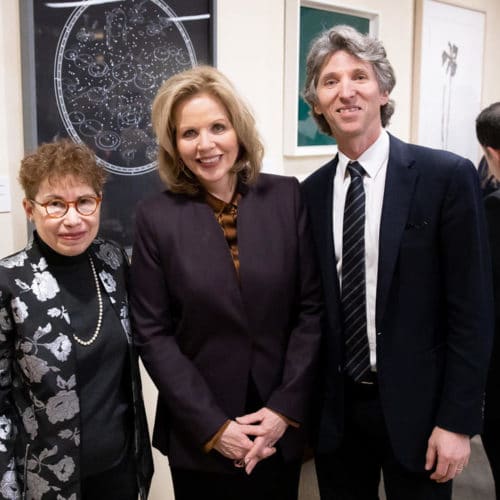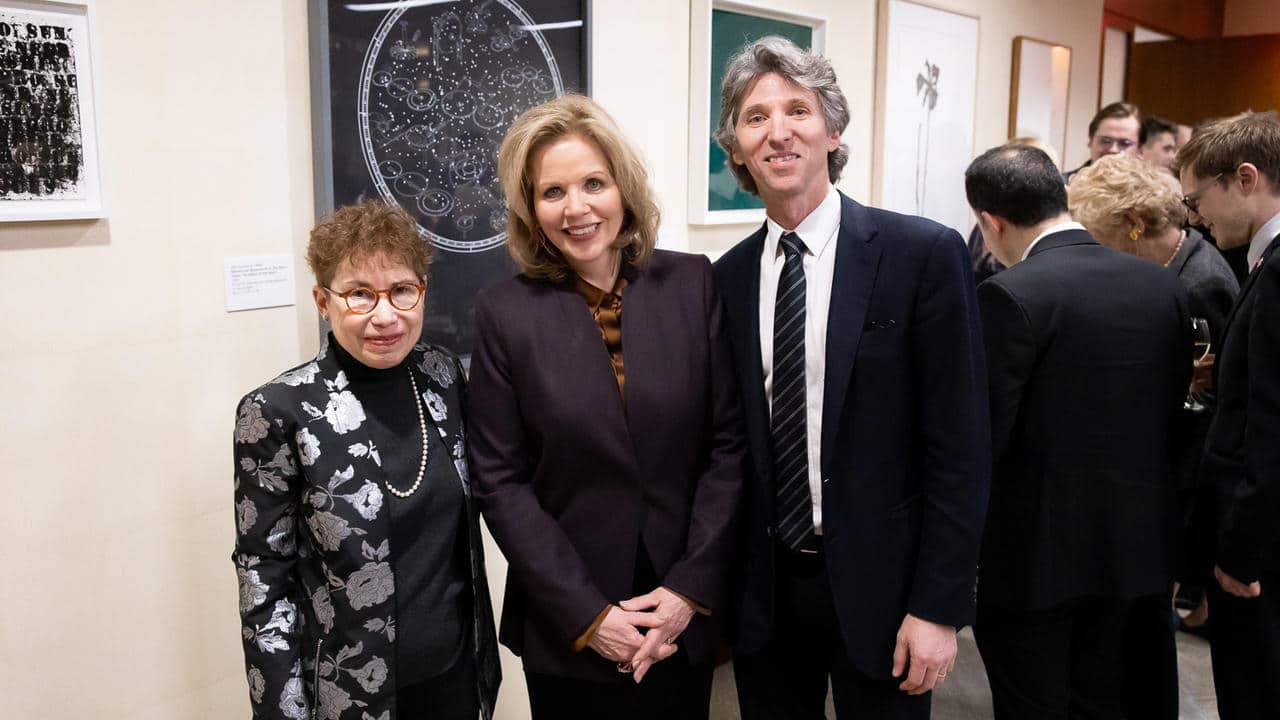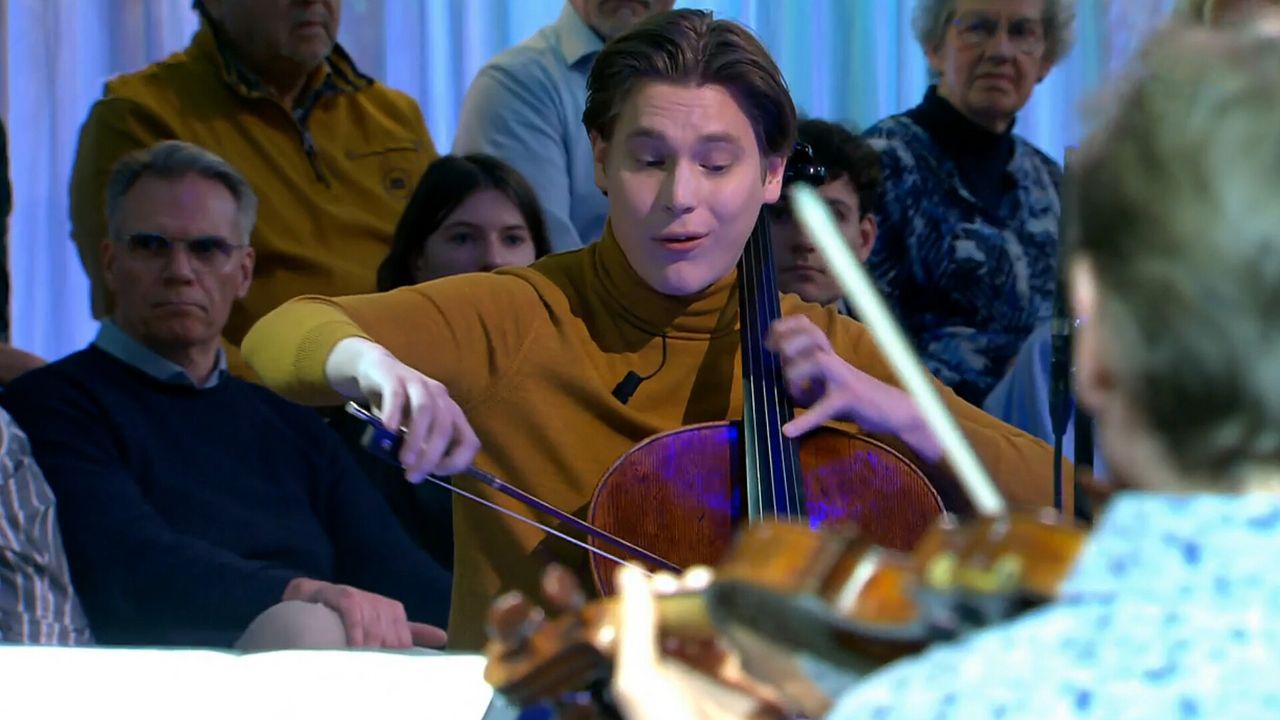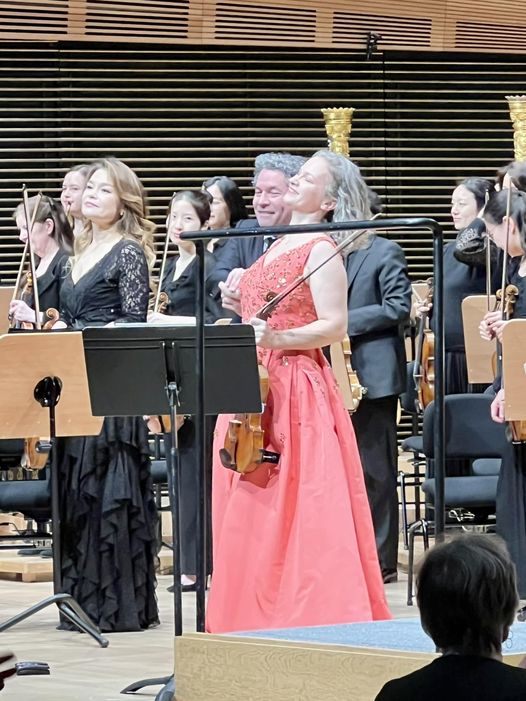Renee Fleming gives it all up to Juilliard
mainThe soprano is donating her personal archives to the school where she studied.
The Renée Fleming Archives, which document Fleming’s ongoing career from its beginning, include selected correspondence, press clippings and magazine features, press kits, programs, performance and professional engagement materials, video performances, memorabilia, and iconography. The archives will be part of the Peter Jay Sharp Special Collections at Juilliard, which also include the Jennie Tourel and Soulima Stravinsky Collections as well as many other notable collections. The Special Collections are housed in the school’s Lila Acheson Wallace Library. In appreciation of Fleming’s generous donation, Juilliard will exhibit materials from the collection once every two years.
“I’m gratified that Juilliard, which has nurtured so many artists, will provide a central home for my archive,” Fleming said. “The world of music has undergone radical change, and I’ve observed that evolution first-hand. I have often forged my own way, on a path that hasn’t always conformed to a standard model. My hope is that this archive will be a useful resource for students, scholars, or music lovers who want to know more about my own experience as an artist.”
More here.







==selected correspondence, press clippings
Most of this could and should be thrown away.
Bernstein’s letters were of vast interest and a large selection were published.
C’mon Ms F, do a spring cleaning !
You can’t know that 1) She hasn’t done “a spring-cleaning” before choosing what to donate and 2) that her correspondence will not prove interesting — she was not always a star and there may be things from her professional beginnings that can inspire or help young artists hoping to become half as successful.
I wonder if the US offers the same tax break for donating archives as Canada does?
Don’t know how it’s calculated but I am sure there is a tax credit for a donation to a non-profit organization.
You’re right. You can’t know.
Stop. There.
One diva’s trash…..
Internet bully , boring.
Obviously you’ve been through her archives and know what should or should not be kept. Are you planning to offer her your assistance?
As an archival researcher myself, I must take exception to Clark-Maxwell’s dismissive attitude towards correspondence and press-clippings. Correspondence can be very useful in elucidating many aspects of artistic and professional life that would otherwise remain invisible, and is thus of enormous research value, often in ways that the donor did not anticipate. What may, to the donor, seem like an irrelevant or peripheral subject, may be central to someone else’s research. After all, many musicians have been active in multiple branches of the profession, notwithstanding the fact that they may self-identify primarily and/or be known primarily for their achievements in one particular branch.
Of course, academic research reliant on correspondence must consider the ethical and copyright implications of quoting the material, especially when subjects are living and professionally active (having said that, in my experience, it is usually easier to get permission to quote letters written by living persons than from deceased persons still in copyright). I have read many letters that talk about personal matters, illness, and commercial negotiations (for obvious reasons, I am not going to give details of what I have read, although I will say that I have read a letter from Fleming to the composer Thea Musgrave, which is in the Musgrave archive at the British Library). But where the donor has concerns about embarrassing material coming to light, institutional archives are usually willing to embargo materials for decades, so I would encourage donors *not* to spring-clean (although if they can index or otherwise sort their correspondence, it is always helpful… having said that, it can be fun to do some detective work to figure-out, for example, the surname of a correspondent who signed-off with only a forename).
As for press-cuttings, they are valuable in indicating which media are the most influential or noticed by the artist, as well as constituting a very convenient thematic collection centred on the artist’s reception history. Although many of the cuttings may be duplicated in other collections (online and physical), they are still important for their discoverability and any annotations. Often, a review may be buried in a column that is not findable via an index or Ctrl-F (besides, the problem with Ctrl-F as a search mechanism is that a relatively common surname such as “Fleming” will elicit too many false positives). Moreover, in my own archival research, I have found that some press-cuttings appear to be unique (online collections have many lacunae, and newspapers often have multipile editions/impressions/formats, many of which are *not* preserved systematically).
If only the Fleming archives had gone to an institution on my side of the Atlantic, I would have been off to consult them…
Oh shut up.
First she studied at the State University of New York at Potsdam.
…and after that at Eastman, where she had the same teacher as Nicole Cabell later on.
Personally I have nothing against Potsdam and were I of any importance I might leave my archive there were I an alumni. But ask yourself this – who’s ever heard of them in the same breath as Juilliard – a diva trades in obvious prestige and public recognition.
You beat me to it. She also undertook grad studies at Eastman.
And also the Eastman School of Music in Rochester, NY
There will be lines out the door and down the hallways of that lauded asylum. Each and every item must matted and placed in climate controlled glass cases.The public must stand behind a velvet rope to view the relics. Tickets can be sold at a premium to help subsidize the salaries of an anemic vocal faculty. It’s a win win for The Yard.
I found her book “The Inner Voice” to be very interesting and well-written.
Probably a lot of what we know about the lives of famous opera singers of the past comes from “silly” collections like this one, which, I would guess, are an important resource for biographers.
Kudos to Mary Lou Falcone, her long time press agent whom she fired, for keeping copies of all Mme. Flemings careet steps.
She had a fine career, but no one can claim she is a significant, historic voice or artist-so how interesting can her stuff be? and anyway, isn’t this what you do when you’re at life’s end , or in your will?
But in a world where 30 year old “popular” soloists are giving “master classes”, where soloists enhance their performances with scanty clothing, where what’s left of opera is permanently saddled with absurd productions, why should I be surprised. Maybe Renee got a good tax write off on her archives, they’re good for that.
LOL
Sorry but I don’t recognize the woman standing with Ms Fleming and Mr. Woetzel. Can someone enlighten me please?
I’d imagine Jane Gottlieb, head librarian, though haven’t seen her in decades
she’s the main librarian. been there for years, sorry I seem to have forgotten her name
https://www.juilliard.edu/news/131561/staff-portrait-jane-gottlieb
I remember Renee from way back when she was booed at La Scala for her runs at Lucrezia Borgia. Most people don’t remember that the poor conductor, Gianluigi Gelmetti, became so upset that he collapsed twice on stage and had to be carted off by ambulance.
Boo. Not to Eastman????